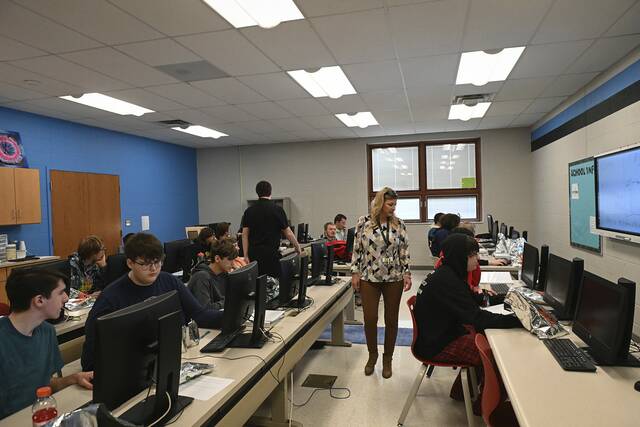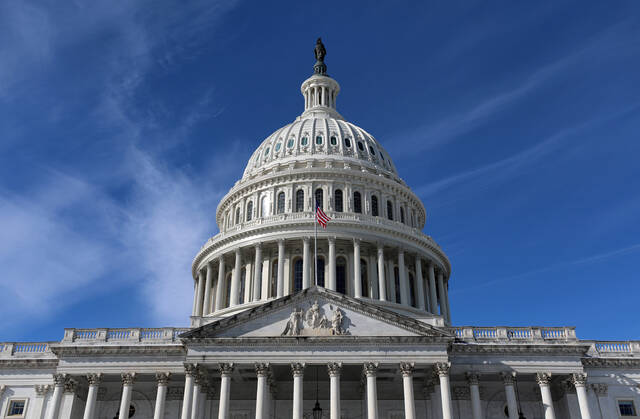As a superintendent who has worked to rebuild a rural school district into a nationally recognized model, I’ve seen firsthand how Pennsylvania’s flawed cyber charter funding system undermines public education. From the outside, this may look like just another policy debate in Harrisburg. But in school districts like mine, the consequences are concrete — and damaging.
When I started working in River Valley School District in 2020, it was newly restructured from the former Blairsville-Saltsburg School District and encountered all the challenges of a small rural public system: declining enrollment, tight budgets and a growing number of students enrolled in outside cyber charter schools. At that time, nearly 200 students from River Valley attended cyber charters, and it cost over $2 million annually for their tuition.
The cost was staggering. For every student who chose a cyber charter, our district was required to pay upwards of $13,000 per regular education student and more than $30,000 for special education students, even though the cyber charter’s actual instructional costs are significantly lower. There wasn’t any negotiation, no assessment of quality and no accountability. The tuition was pulled from our general fund money that could have gone to classroom teachers and mental health counselors or upgrading technology infrastructure.
We knew that we could not continue to pay that amount. River Valley created our own district-run cyber academy, offering families flexibility without sacrificing district connection, accountability or quality. We staffed it with our certified teachers, aligned it with our curriculum and integrated support systems such as school counseling and special education services. Today, that investment has paid off. Our outside cyber charter enrollment has dropped from 200 students in 2020 to fewer than 50 today, saving the district nearly $1.5 million annually.
Not every district has the capacity to do what we’ve done. Some are too small, and others lack the staff or resources. We are constantly battling an inequitable state funding system that continues to punish fiscally responsible districts. Pennsylvania’s cyber charter law forces public schools to overpay for services that often are lower in quality, unregulated and unaccountable.
Our district has achieved national recognition. River Valley is now part of the League of Innovative Schools and has been named an AASA Lighthouse District for transformative work in innovation, early learning and career readiness. We’ve launched a STEAM Academy, expanded preK programs and led the way with artificial intelligence in K-12 education. However, every dollar diverted to cyber charters slows our momentum. We have articulation agreements with three of Pennsylvania’s largest cyber charter schools, which pay and send their students to the River Valley STEAM Academy.
What frustrates most educators across the state is not the existence of school choice — it’s the lack of financial fairness. Cyber charters should be held to the same standards and funding transparency as the rest of us. There is no cost analysis justifying the current tuition rates. Nor are there consistent academic results. Many cyber charters have low graduation rates, limited support systems and minimal oversight. Yet they continue to siphon dollars from districts that are delivering results.
I understand that cyber charter reform is politically complicated. The lobbying influence in Harrisburg is real, and many lawmakers are reluctant to touch the issue without horse-trading for vouchers or broader school choice initiatives. But this is not a partisan problem; it’s a budgetary and moral one.
We must fix this funding imbalance to make public education more efficient, responsive and sustainable. Reform must start with a realistic tuition cap based on actual cost and stronger accountability standards for cyber providers. Local districts deserve the opportunity to compete on a level playing field, and parents deserve transparency about what their children are getting for that tuition bill.
Until that happens, school districts like River Valley will keep doing the hard work of innovating and adapting. In contrast, others continue to fall behind burdened not by poor leadership but by a system that rewards inefficiency and drains public resources.
Cyber charter reform isn’t just a policy debate. It’s a fight for the future of Pennsylvania’s equitable, high-quality public education.
Philip Martell is superintendent of River Valley School District in Indiana County.








